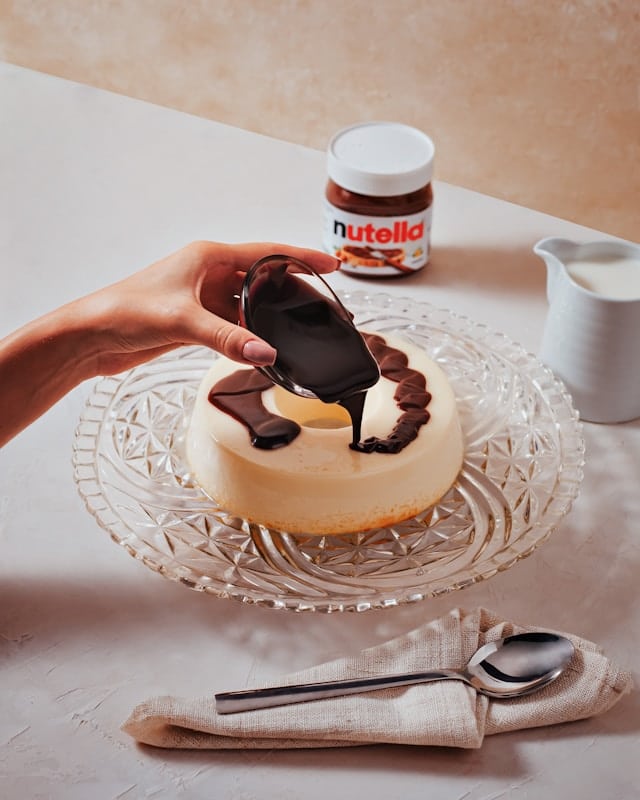Yorkshire puddings! This British classic is a golden delight that has graced dinner tables for centuries, a beloved partner to a Sunday roast. But what happens when dietary restrictions, such as gluten intolerance, mean you can’t indulge in the traditional recipe? Fear not, for we have the perfect solution. This article will guide you through the secret of making mouth-watering gluten-free Yorkshire puddings from scratch. With a few tweaks and tips, you can achieve a fluffy pudding that is every bit as delicious as the original, sans the gluten. Let’s discover the art of making gluten-free Yorkshire puddings.
Choosing the Right Ingredients for Gluten-Free Yorkshire Puddings
The first hurdle in baking gluten-free Yorkshire puddings is the choice of ingredients. Traditional Yorkshire pudding recipes call for standard wheat flour, which contains gluten. The challenge here is to find a gluten-free flour mix that will give your puddings the right texture and taste.
This might interest you : How to Create a Gourmet Quinoa and Roasted Vegetable Salad with a Lemon Tahini Dressing?
When it comes to gluten-free flour, there are numerous options available. A combination of rice flour, potato starch, and tapioca flour often works well. You can choose a pre-mixed gluten-free flour blend, ensuring it doesn’t contain any xanthan or guar gum as these can make your puddings gummy.
The other ingredients you’ll need are eggs, milk, and fat. The eggs provide structure and help the pudding rise, while the milk creates a smooth batter. The fat, usually oil or beef dripping, is essential for achieving that classic crispy exterior. For a dairy-free version, substitute milk with almond milk or another suitable alternative.
Additional reading : Can You Make a Gourmet Lavender and Honey Ice Cream with a French Custard Base?
Mastering the Gluten-Free Batter Technique
Now that you’ve got your ingredients sorted, it’s time to talk about the batter. The secret to a good Yorkshire pudding, gluten-free or not, depends on the batter consistency. It should be thin, almost like the consistency of single cream, to achieve a light and airy pudding.
Begin by whisking the eggs and milk together. Gradually add the flour while still whisking to ensure no lumps form. Once all the flour is incorporated, allow the batter to rest for at least 30 minutes. This step is crucial because it allows the flour to absorb the liquid, which helps in creating a crispier pudding.
One key tip here is to not overwork your batter. Overmixing can lead to dense, heavy puddings. A light hand is needed to ensure that you end up with a smooth, lump-free batter.
The Importance of a Hot Oven and a Hot Tin
A common pitfall for many when making Yorkshire puddings is not having the oven or the tin hot enough. The high heat is what causes the batter to rise rapidly and form the signature hollow centre of a Yorkshire pudding.
For perfect gluten-free Yorkshire puddings, preheat your oven to 220°C (425°F) for at least 15 minutes before you plan to cook. In the meantime, generously coat your muffin tin with oil or beef dripping and place it in the oven to get smoking hot.
When the tin is hot enough, carefully remove it from the oven. Pour the batter into each muffin cup, filling it about half-way. The batter should sizzle when it hits the hot oil, which is what you want for a well-risen pudding.
Cooking Times and Temperature for Gluten-Free Yorkshire Puddings
Once your filled tin is in the oven, the next crucial factor is the cooking time and temperature. Yorkshire puddings need a high heat to rise but leaving them in too long at a high temperature can result in burnt puddings.
The initial high temperature is what makes the batter rise and start to set. After about 15-20 minutes, reduce the temperature to around 180°C (350°F) and cook for another 10 minutes. This lower temperature will allow the puddings to cook through without burning. Remember, gluten-free flour tends to brown faster than regular flour so keep a close eye on them.
Remember, every oven is different. The cooking times and temperatures mentioned here are guidelines and you may need to adjust according to your oven.
The Final Touch: Serving Gluten-Free Yorkshire Puddings
After taking your gluten-free Yorkshire puddings out of the oven, it’s ideal to serve them immediately. They’re best enjoyed hot, crispy on the outside and soft on the inside. You can serve them with a traditional roast or any main dish of your choice.
A dollop of gravy on top of your pudding is the traditional way to serve it. However, don’t limit yourself. Be creative and try new combinations! Experiment with different fillings like creamy mushrooms or shredded roast chicken. The possibilities are endless.
In the end, creating a perfect gluten-free Yorkshire pudding is not as daunting as it may seem. The key is to use the right ingredients, prepare your batter well, and pay attention to your oven temperature and cooking times. Happy cooking!
Adjusting the Recipe for Dietary Restrictions
Making gluten-free Yorkshire puddings is not all that different from creating the traditional version. However, if you have other dietary restrictions, there are ways to modify this recipe to suit your needs. For example, for a dairy-free version, you can substitute the milk with almond milk. If you have an egg allergy, you can use an egg substitute, such as a flaxseed or chia seed mixture.
When making these adjustments, note that the end result may not have the same texture or taste as a traditional Yorkshire pudding. For instance, replacing eggs might result in a less fluffy pudding, as eggs provide structure and help the pudding rise. Similarly, using a non-dairy milk could slightly alter the flavour. However, with experimentation, you can find a combination that gets as close as possible to the traditional taste and texture, while adhering to your dietary restrictions.
When it comes to the fat used in the pudding, traditionally, beef dripping is used. But for vegetarians or vegans, this can be replaced with vegetable oil. When replacing the beef dripping with oil, make sure to heat the oil in the muffin tin until it’s smoking hot, as this is key for achieving the classic crispy exterior of the Yorkshire pudding.
Conclusion: Embrace the Deliciousness of Gluten-Free Yorkshire Puddings
Cooking delicious gluten-free Yorkshire puddings is all about using the right ingredients and techniques. By making the suggested alterations to the traditional Yorkshire pudding recipe, you can enjoy a scrumptious dish that’s gluten-free, and maybe even dairy-free or vegan, depending on your needs.
Remember, the secret to a good Yorkshire pudding, whether it’s gluten-free or not, lies in the batter consistency. Do not overmix your batter, let it rest, and ensure your oven and muffin tin are hot enough before pouring in the batter.
Following these tips and guidelines, you should be able to serve up fluffy, golden gluten-free Yorkshire puddings that are just as delightful as their gluten-filled counterparts. They can be enjoyed with a traditional roast dinner, toad in the hole, or other favourite dishes. So, roll up your sleeves, start cooking, and embrace the deliciousness of gluten-free Yorkshire puddings!











